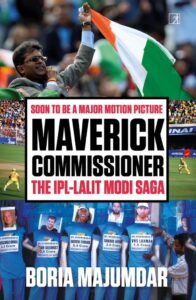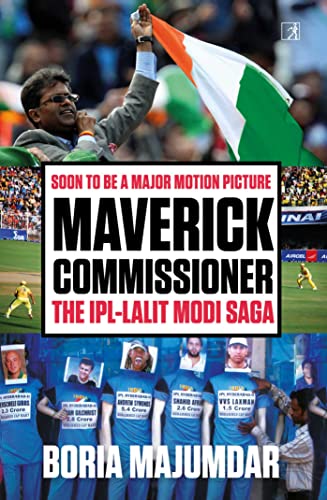
The night Mumbai Indians played (and lost) their first IPL final, the Lalit Modi era in Indian cricket administration came to an abrupt end.
As far as Lalit Modi was concerned he was all flamboyance when he landed in the stadium in his helicopter. The suit and every piece of clothing he wore were perfectly colour coordinated and in place, it was impossible to gauge that here was a man going through the worst crisis of his life. It was literally his genius to be able to keep calm with all the goings on around him and conduct the toss and everything else as if it was routine.
He did give it away though at the prize distribution. His address was more of a farewell speech than anything else and for anyone in the know it was a giveaway that his time was up. With a sense of satisfaction on his face, an emotional Lalit went on, “The IPL is clean… I am speaking as IPL Commissioner and the captain of the team. IPL has been unfortunately surrounded with offfield dramas. The recent happenings are only based on innuendoes, half-truths and motivated leaks from all sides. I assure you all decisions are jointly taken by the GC [governing council] and were approved by the general body in the first and the second year of IPL. I reassure you that if there is any flouting of rules and any irregularities, I will take full responsibility. I would like to assure you fans from across the globe that the IPL is clean and transparent and I thank millions of fans for making it one of the best sporting leagues ever…IPL has faced many challenges this year, but we have faced these challenges head on.”
In a speech full of sentiment, he went on to say, “As the Bhagvad Gita says, ‘Fear not what is
not real, never was and never will be.’ What is real, always was and cannot be destroyed… All I wanted is to leave a small footprint in the glorious history of the game. I thank my family, my children who have stood by me through the trying times all these years and continuously stay with me; I take my strength from them. My final thank you is to
you, the fans all over the world. We missed you last year in India and it’s wonderful to be back home. It’s your passion and this is the reason we built the IPL; it’s your passion that sustains us, your passion that enriches us, this is not the Indian Premier League, it’s the Indian People League. I humbly dedicate my dream to all the people in this country. Thank you.”
It was as if Lalit was summing up years of hard work. Reminding us all that the IPL was
his baby and was something he had created and nurtured. For the record, and this needs to be stated unequivocally, 100 per cent credit for the creation and implementation of the IPL should go to Lalit Modi. Good or bad, it was all Modi and it was all coming to an end for him on this particular night at the Wankhede.
The Modi who took the stage that evening was very different to the one the world had come to know—a Modi who knew he was saying a final thank you but wasn’t willingly doing so. He never would. In his mind, he had done no wrong. He was philosophical and sarcastic, belligerent and passionate. He had created India’s only global sports brand and no one could take it away from him—a fact mentioned rather eloquently in his letter to then BCCI CEO Rahul Johri in mid-2017, saying he was leaving cricket administration. “When I joined the system way back in 2005, Indian cricket was healthy but had still not achieved its true potential. Then as we set about course correcting, we unlocked the real potential regarding the commercial value of the game in India. When I came into the BCCI, the revenues were languishing at about 260 crores and when I left in 2010, the reserves were more than 47600 crores. A game that would sell for a paltry 40–50 lakh today sells for 100 crores. Today India is at the pinnacle of the world cricketing economy… Special mention here for one Mr Sharad Pawar—who shared the vision and encouraged me in our quest to launch and run one of the world’s most viable cricket products of all time—The Indian Premier League. In 2010, it was valued at $11 billion and today the value of IPL has fallen to $4 billion due to lack of innovation. That has still increased the value of cricket in India by nearly eight times. Columbia and Stanford University have done case studies on how I built the league and sustained it.”
On 25 April 2010, however, within minutes of Lalit getting off the podium having completed
the formalities did Rajiv Shukla go and hand over a hard copy of the suspension notice to him, one that had already been emailed minutes earlier.
This is an extract from Maverick Commissioner, Boria Majumdar’s book on the IPL-Lalit Modi saga. You can buy it here.




